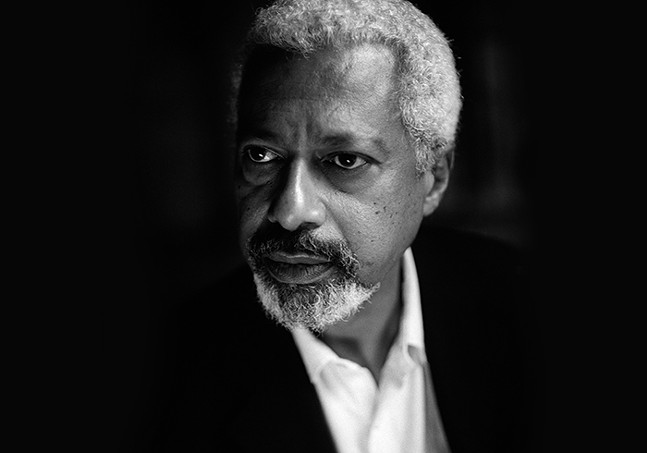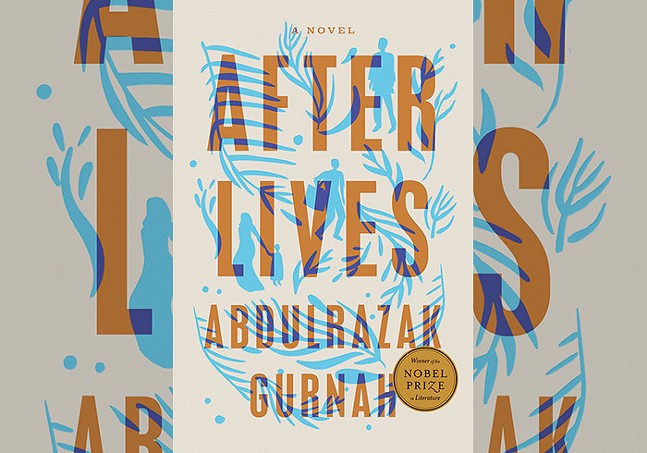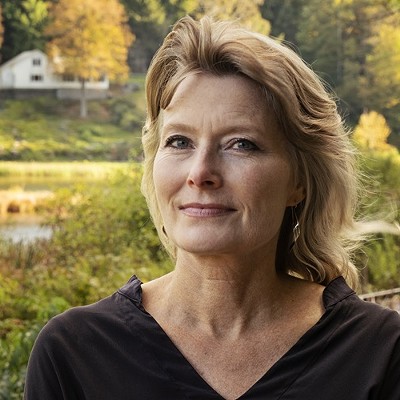Sometimes the gestation period for a novel can span decades.
Zanzibar-born Abdulrazak Gurnah grew up hearing about German and British incursions in East Africa dating back to the 1880s through the early decades of the 20th century. In 1989, after the fall of the Berlin Wall, he began exploring the era when the region was subjected to colonization.
“I wrote about how is it a young man arrived at the point where he volunteers and joins the colonial army,” Gurnah says, noting at the time he didn’t have enough knowledge to complete the novel.
He set the story aside for almost 30 years, teaching at the University of Kent, where Gurnah is currently Emeritus Professor of English and Postcolonial Literatures. Gurnah also published a series of acclaimed novels including By the Sea, Desertion and Paradise, the last of which was nominated for the Booker and Whitbread prizes.
In 2018, he returned to the story which would become Afterlives (Riverhead Books), which earned the 2021 Nobel Prize in Literature and thematically connects to Paradise.
“It was the right time to return, to pick up the story in a way, although it's not a sequel,” Gurnah says. “To pick up the story of what might have happened to some of those young people who, for whatever reason, joined the colonial army for reasons that they didn't really understand.”
Gurnah appears Sept. 15 as a guest of Pittsburgh Arts & Lectures’ Ten Evenings series.
Afterlives is a monumental, epic work of fiction, a story that transcends genres. It can be read as historical fiction, as an adventure novel, and, ultimately, as a love story. The story examines how the colony Deutsch-Ostafrika, or German East Africa, ruled with an iron fist in the region, affecting the lives of millions of Africans.
When he was growing up, Gurnah, now 73, heard stories from his mother’s uncle about the era.
“He was conscripted into the German carrier corps, so he was the first person I heard telling stories of that experience in his own way,” Gurnah says. “There was something of stories that was already present. The ferocity of the Germans was also kind of mythical as I was growing up, even though they were no longer around. They’re sort of leftover stories of their presence in our part of the world.”
The characters in Afterlives are sublimely drawn. As a child, Ilyas was kidnapped by an African mercenary and sent to a German mission school. He returns home and reunites with his orphaned sister Afiya, but inexplicably leaves to fight with the Germans against the British. After Ilyas leaves, Afiya is returned to the remote village where she grew up to live with a family who treats her as a servant, only to be rescued by friends of Ilyas. She eventually meets Hamza, who has served with the Germans as an assistant to an Oberleutnant (the highest lieutenant officer rank in Germany’s armed forces) and has seen and experienced unspeakable horrors.
Their stories are at times excruciating in detail. Gurnah felt the emotional swings of the characters, the times when merely having hope seemed futile.
“The whole point of making them go through these experiences separately is that they will at some point meet and that at some point they will turn out to be helpful to each other,” he says. “And then they will help each other to retrieve something from the traumas in their lives, So, in a way, I know that they're going to be all right.”
Throughout the novel, Gurnah notes the hundreds of thousands of Africans who were killed during what was called the Great War, whose lives were treated as expendable by the colonizers. But there also were survivors, such as Afiya and Hamza, who endured through sheer resilience.
“I wanted to start with two people who were injured in some way, either injured physically or traumatized by their experiences, or both,” Gurnah says, “and then to bring them together to see how what you're calling resilience, but what I call the capacity to retrieve something out of a broken life. I wanted to bring them together to make that work.”
Ten Evenings with Abdulrazak Gurnah. 7:30 p.m. Thu., Sept. 15. Carnegie Music Hall. 4400 Forbes Ave., Oakland. (Virtual tickets also available.) $10-18. pittsburghlectures.org



















